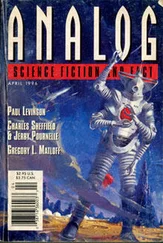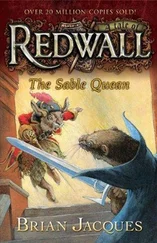That was the trouble. There were always sirens.
PART FOUR/DUST OF A FADED DECADE
“But it is even so; the fallen angel becomes a malignant devil. Yet even that enemy of God and man had friends and associates in his desolation; I am alone.”
— Mary Shelley
Frankenstein
He had lost sight of the past, wondering if for every year he spent distancing himself from civilization, those memories had not become more and more like some vestigial organ that had withered to a nub, to someday drop away entirely. The primitives, he had heard it said, possessed no true sense of time, past and future only the broadest of conceits, sacrificed to a raw and overwhelming now.
Was he, in part, proving the theorists right, bridging that gap by becoming a living atavism? Would that no one ever got the opportunity to find out. He had tried their route; he’d been there before.
As for the route he had chosen, its first steps he scarcely remembered; they seemed as unimportant as his name, his lineage. Once even dirt roads have been forsaken in favor of desert vistas and high crags, one can wander for years without need of the past. It made no one any less human.
He could no longer recall how he had found himself here, but some nights, when on the verge of sleep with rocks at his back and the fire at his front, he stirred with the idea that something must have been terribly painful long ago, when he was young, with fewer scars, and that it was better left in a world given up for dead. Memories were sly things, not to be trusted, for their faces could change so over time. Treacherous change he did not need. Better he immerse himself in something stable and endless, a place that time could never defile, because what was time but a sense of order imposed by human hands?
A desert was such a place.
To the Gobi he had come, drawn by its call, its immensity, by everything it promised not to be. It offered neither truth nor lies, it simply was , and that was all he asked for. That, and the fulfillment of some tale he knew he had heard, with reason to believe, but far enough ago that its teller had been lost to him.
Once upon a time he had heard of the almas , and their story lay lodged within him so deeply it might have been a memory planted for the sole purpose of sending him to an elder world in which hours had no meaning. A world in which lives progressed by days and nights, by the passing of the seasons and the cycles of the moon. He needed no more clock than these.
Deserts he crossed and mountains he climbed, nourished by the land and that with which it teemed. Old clothes tore and rotted and fell away to be replaced by hardier skins, while his head and face sprouted with hair thicker than any he had known before. It must have been years that he wandered, that he climbed, and his feet grew tough and his hands callused, and his voice grew vast with the song of primeval solitude. He was earth and wind and sky and water. He was beast and dream.
And the almas waited.
He loved them long before he saw them, knowing that whatever they were, when he found them it would not matter. Be they hermits of folklore, or the descendants of feral children, or some dead-end evolutionary branch, prototypes of humanity with all their potential intact, who lived now as forgotten anachronisms. They were as wrong for the world he had abandoned as he was himself — he remembered that much, too, not quite recalling the problem, only sure of one thing: I am not like others, not like others.
He roamed the slopes and plateaus, and sometimes he would find the remains of their fires — more than once still warm, he was but hours behind them — and the bones of their kills, picked clean. In the shelter of caves he would find evidence of their lingering, earthen pigments used to pay homage to a mighty bisonlike creature that would surely die a very hard death. In all his years up here he had seen no such animal, and it was a long time before he realized: They passed it down. They remember what used to be, as a people, if not as individuals. This is how they keep it alive because if they let it die, a part of them dies too.
He wished that where he’d come from they had known things like that.
So he followed, but the almas were as elusive as they were nomadic, as shy as their legends said. There were times when he began to wonder if he were becoming somehow incorporated into their folklore. And why not, they must have found him a creature of sufficient mystery: a solitary being with a strangely shaped head but clothing not unlike their own, who walked in fog and left lonely tracks in the snow. Perhaps they thought him a spirit, or a god. Or a demon.
He knew only that they seemed to grow to trust him, allowing him to get closer and closer over the years before turning and melting into the hillsides. Half a mile became a quarter, became an eighth, until as little as fifty yards might separate them, and the almas would stand immobile, stocky and powerful atop a hill, silhouetted against a sky of blue, or gray, or sunset red. They would stare at one another through mists and rains and burning suns, but the almas would always vanish before he could walk in on their camp.
Still, he took their small tokens as encouragement to keep trying, objects they could not have left behind by accident in their haste to flee. A soft-furred pelt, a flint knife, a clutch of wild flowers lashed by rawhide to a bone. Such gifts he came to cherish, whether they were left in simple trade, or in appeasement driven by awe.
So he followed, and dreamt of the day when they would no longer run from him, and he began to imagine fathering a child, the idea no longer repellent, as it had seemed long ago. What might such a child be like? Perhaps, backward as the almas were, that which was best in them might cancel out what was worst in him, and so the child — or children — could grow to be something new, better than either of them, a more worthy survivor.
If only they would let him get closer, close enough to touch.
They had to; this could not be all there was.
And, too, if only that damned blazing star would quit searing from the sky to blind him at the most inopportune moments —
* * *
“Pupillary response… none.”
The results were always the same, year after year — shine a penlight into his eyes and it might as well have been shone down a mineshaft. Pupils fixed, pursuant to damage to the frontal lobe, she’d been told more than once; patient catatonic. He had, for the greater part of a decade, not uttered a single word, nor focused his eyes on anything in his field of vision, nor reacted to one sound around him. It was as if Clay Palmer had simply gone away.
Each summer Adrienne flew northeast to visit her parents in their retirement on Prince Edward Island. From there it was a simple matter to drop down to Logan Airport in Boston, then rent a car and drive out to Worcester to visit with Clay in the state hospital that had been the longest-lived home of his adult life.
Never had he given any indication of being aware of her, but she visited anyway, hoping against experience that in the year since her last visit he might have shown some meager improvement. Always a disappointment, though, and Adrienne supposed by the time she was forty she had given up hope, had accepted, and, all things considered, was grateful that Clay had grown no worse.
He had, ironically, managed to keep his youth over the years, his skin still smooth as a twenty-five-year-old’s because he never used it and it never saw the sun. His impassive countenance became a living museum exhibit of Helverson’s syndrome, worst-case scenario, the streamlined bones no longer going anywhere. And as fine lines circumscribed her mouth, crossed her forehead, circled her eyes, she began to resent his stasis. Age, damn you! — a fool’s command, and she thought of spending hours folding his face with wrinkles in hope that at least a few might take root. It wasn’t fair; he was thwarting her in body as well as mind.
Читать дальше












